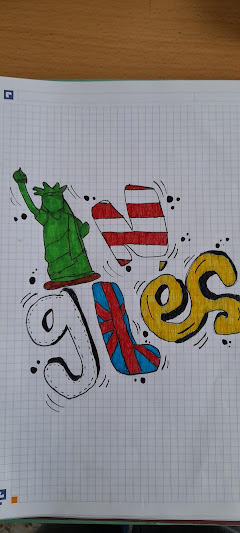MODAL
AUXILIARIES: USED TO (BE USED TO / GET USED TO)
USED TO
To describe a state or
habitual action in the past. ALWAYS in
the PAST.
Subject
+ USED TO + Base + (Complements)
STATEMENT We used to play tennis
She
used to watch TV
They
used to live abroad
NEGATION We didn't use to play tennis
She
didn't use to watch TV
They
didn't use to live abroad
INTERROGATION Did we use to play tennis?
Did
she use to watch TV?
Did
they use to live abroad?
1) BE USED TO
To mean ACCUSTOMED TO. ANY verbal tense.
To mean ACCUSTOMED TO. ANY verbal tense.
Subject
+ be + USED TO + NOUN PHRASE / V-ing (Complements)
STATEMENT I will be used to working everyday
She
was used to painting ten years ago
We
are used to cold days
NEGATION I will not be used to working
everyday
She
was not used to painting ten years ago
We
are not used to cold days
INTERROGATION Will I be used to working everyday?
Was
she used to painting ten years ago?
Are
we used to cold days?
2) GET USED TO
To mean BECOME USED TO. The
same conditions that BE USED TO.
Subject
+ get + USED TO + NOUN PHRASE / V-ing (Complements)
STATEMENT I had never seen a cow but I soon
got used to it fast
NEGATION They don't get used to hearing the
noise of the city
INTERROGATION Will she get used to cool days
easily?


